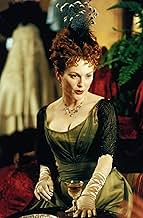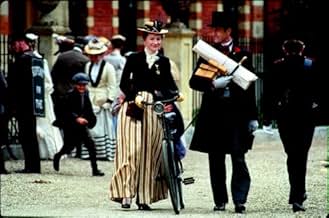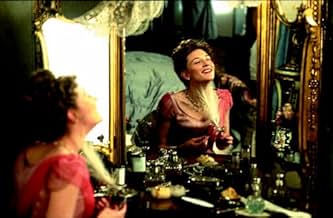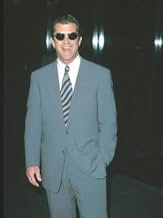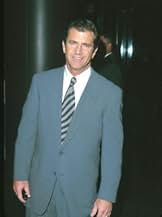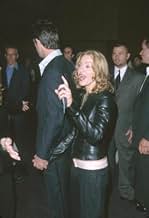London 1895: Cabinet minister, Sir Chiltern, and bachelor, Lord Goring, are victims of scheming women.London 1895: Cabinet minister, Sir Chiltern, and bachelor, Lord Goring, are victims of scheming women.London 1895: Cabinet minister, Sir Chiltern, and bachelor, Lord Goring, are victims of scheming women.
- Nominated for 3 BAFTA Awards
- 4 wins & 17 nominations total
- Director
- Writers
- All cast & crew
- Production, box office & more at IMDbPro
Featured reviews
I saw "An Ideal Husband" at the Old Vic theater in London, and was surprised at the time how timely a 100 year old play could be.
When I saw the trailers, TV ads and posters for this version, it seemed like an entirely different story--will Rupert Everett get married off. That's certainly a thread in the movie, but in the marketing of this version, they made it appear as if it was the entire wardrobe.
I didn't see the film when it was in theaters because these ads, with their very modern music and fast cutting, made the film look like a joke.
But when it came out on video, I decided to try it, and am glad I did.
The film itself is excellent. Beautifully shot and paced, with an expert cast. Wilde's humor shines through, and the writer-director has done a wonderful job "opening" up the play into a film, without changing anything important. It's a masterful job of translating from stage to screen. It's really so crisply done, and very funny.
In years to come people will realise that this is a fine movie version of this play. And by then, hopefully, they will have either forgotten about the marketing campaign, or hopefully learned from it.
I recommend the film.
When I saw the trailers, TV ads and posters for this version, it seemed like an entirely different story--will Rupert Everett get married off. That's certainly a thread in the movie, but in the marketing of this version, they made it appear as if it was the entire wardrobe.
I didn't see the film when it was in theaters because these ads, with their very modern music and fast cutting, made the film look like a joke.
But when it came out on video, I decided to try it, and am glad I did.
The film itself is excellent. Beautifully shot and paced, with an expert cast. Wilde's humor shines through, and the writer-director has done a wonderful job "opening" up the play into a film, without changing anything important. It's a masterful job of translating from stage to screen. It's really so crisply done, and very funny.
In years to come people will realise that this is a fine movie version of this play. And by then, hopefully, they will have either forgotten about the marketing campaign, or hopefully learned from it.
I recommend the film.
Gertrude (Cate Blanchett) is an English aristocrat in the Edwardian era. She is very much in love with her husband, Robert (Jeremy Northam), a rising star in the British Parliament. Yet, an old schoolmate of Gertrude's, the conniving Laura (Julianne Moore) arrives back in town with a mission. She knows a secret about Robert that would bring about his ruin and decides to pressure him to support a government bill that would invest heavily in a Argentine adventure, one she has staked her money on as well. What can Robert do? He turns to a close friend, Lord Arthur (Rupert Everett) for help. Arthur, a rich and witty bachelor, offers what support he can. But, with women chasing him around every corner, including Robert's sister, Mabel (Minnie Driver), can Arthur devote the time required to saving his friend? And, will Gertrude have to be told about the blackmailing, causing her to lose some faith in the husband she thinks is "ideal"? This film, based on a play by Oscar Wilde, is a sophisticated and charming movie of the highest order. As such, it is replete with clever and mirthful lines, lovely costumes, beautiful sets, and memorable characters. As the principal actors, Blanchett, Northam, Everett, Driver, and Moore are excellence itself, laying doubt that anyone else could have filled their roles in a better manner. Yes, it is a dialogue-driven film but it is never stuffy or boring. If you have enjoyed such movies as Emma or A Merry War, this one is an ideal choice for your next film engagement. But, even if you are channel surfing and stumble across the flick on some lonely night, you will be drawn to its universal humor and humanity.
If I weren't so lazy, I would have checked the original play to see if my favorite line from the movie was in it:
Goring's father: I use nothing but my common sense. Goring: So my mother tells me.
Even if was concocted for the film, that line still contains the essence of Wilde and the essence of all modern British humor, for which, I should say, I'm a major sucker. While watching An Ideal Husband, I didn't object to the lack of suspense as long as Rupert Everett was working his way around those Wilde lines, which he does as well as anyone I've ever heard.
I used to think Stephen Fry was Wilde on earth, but Fry is something wonderfully different -- Everett is Wilde on earth, or at least the actor that Wilde should have had around to deliver those lines when he wrote them. I first saw Everett in The Madness of King George, for which he put on weight. Every review of that film mentioned this; I thought the attention excessive, but when I saw him lying shirtless in a sauna, I understood. The man is, shall we say, cut. I can only imagine the effect of that scene on straight women or gay men -- probably something akin to the effect Greta Scacchi's "I think we're alone now" smile at the end of The Coca-Cola Kid has on me.
An Ideal Husband is full of good performances, with one glaring exception: the usually great Julianne Moore. Her scenes are curiously leaden, and Parker -- whose fault this may be -- has the camera linger over her as though the exposure will convince us how evil she is. The one exception is her scene with Everett, which has a real "Will he sleep with the enemy?" tension. It may be that Moore was just outclassed by the Brits, who are born to this stuff.
Cate Blanchett, whom I've seen in three movies, two of which were British period pieces, continues to amaze me with her range.
The unsung hero of the movie is Jeremy Northam, who takes a thankless role -- the man in the play who isn't the Oscar Wilde figure -- and makes it emotionally compelling. He is responsible for the play's only real suspense and emotion, since the rest is word games, more or less.
All of which leads me to blame the production's shortcomings on its writer/director, Oliver Parker. He seems to have squandered an outstanding cast. The play's final scene is played as a series of French scenes -- a film term for a series of different scenes in the same location -- and this kills any momentum that scene might have had.
Three out of four stars, I say, which makes it better than 90% of the movies out there.
Goring's father: I use nothing but my common sense. Goring: So my mother tells me.
Even if was concocted for the film, that line still contains the essence of Wilde and the essence of all modern British humor, for which, I should say, I'm a major sucker. While watching An Ideal Husband, I didn't object to the lack of suspense as long as Rupert Everett was working his way around those Wilde lines, which he does as well as anyone I've ever heard.
I used to think Stephen Fry was Wilde on earth, but Fry is something wonderfully different -- Everett is Wilde on earth, or at least the actor that Wilde should have had around to deliver those lines when he wrote them. I first saw Everett in The Madness of King George, for which he put on weight. Every review of that film mentioned this; I thought the attention excessive, but when I saw him lying shirtless in a sauna, I understood. The man is, shall we say, cut. I can only imagine the effect of that scene on straight women or gay men -- probably something akin to the effect Greta Scacchi's "I think we're alone now" smile at the end of The Coca-Cola Kid has on me.
An Ideal Husband is full of good performances, with one glaring exception: the usually great Julianne Moore. Her scenes are curiously leaden, and Parker -- whose fault this may be -- has the camera linger over her as though the exposure will convince us how evil she is. The one exception is her scene with Everett, which has a real "Will he sleep with the enemy?" tension. It may be that Moore was just outclassed by the Brits, who are born to this stuff.
Cate Blanchett, whom I've seen in three movies, two of which were British period pieces, continues to amaze me with her range.
The unsung hero of the movie is Jeremy Northam, who takes a thankless role -- the man in the play who isn't the Oscar Wilde figure -- and makes it emotionally compelling. He is responsible for the play's only real suspense and emotion, since the rest is word games, more or less.
All of which leads me to blame the production's shortcomings on its writer/director, Oliver Parker. He seems to have squandered an outstanding cast. The play's final scene is played as a series of French scenes -- a film term for a series of different scenes in the same location -- and this kills any momentum that scene might have had.
Three out of four stars, I say, which makes it better than 90% of the movies out there.
To say that this film is a filmmaking tour de force would be a great injustice. It is far better than that. Oliver Parker's revitalizing of Oscar Wilde's classic play is filmmaking at its finest.
Every element of this film is superlative. Wilde's story as adapted to the screen by Parker is witty, intelligent and engaging from start to finish. Seldom can you find a story that attempts to be a romantic comedy, a tale of duplicity blackmail and betrayal, and a drama of political intrigue, and succeeds so well on all counts.
The intricate weave of deception, manipulation and double entendre along with comic misperception, irony and rapier witted dialogue are delicious and classic Wilde. This is a film you will want to see again and again, just to discover all the lines within the lines.
I cannot say enough about the brilliance of Oliver Parker's direction in this film. He has captured late 19th Century aristocratic England with vivid and rich images that put the viewer right into the period. David Johnson's cinematography is fantastic, with every scene working well as to lighting and color. The beautiful blend of colors in the costumes and the set always looked like they belonged together. Parker also provides numerous interesting camera angles that help dramatize the scenes. It serves to remind us that glorious films can still be made relying on the creative eye of the director rather than special effects.
The acting was delightful. Rupert Everett, as the self absorbed Lord Arthur Goring, delivers an exquisite performance as the unscrupulous rogue upon whom the mantle of truth and honor is laid.
Julianne Moore was delightful as the evil and cunning Mrs. Cheveley. As cold, manipulative and heartless as she is with Chiltern and Lady Chiltern, she is that vulnerable and helpless with Lord Goring, for whom she has long held a flame. Moore handles this emotional juggling act with great skill and you find yourself simultaneously loving her ingeniousness and hating her treachery.
Cate Blanchett turns in another wonderful performance as the oh-so-perfect, Lady Gertrud Chiltern. Jeremy Northam is also excellent as Robert Chiltern, the man of untouchable character with a scandalous secret in his past. Even Minnie Driver is charming as Robert's sister.
This is a terrific film for the refined viewer who appreciates all aspects of filmmaking. Even for those not into the art of filmmaking, it is simply great entertainment. I can think of no negative criticism of it. It is well written, directed, photographed and acted. It is filmmaking the way it was meant to be. A perfect 10.
Every element of this film is superlative. Wilde's story as adapted to the screen by Parker is witty, intelligent and engaging from start to finish. Seldom can you find a story that attempts to be a romantic comedy, a tale of duplicity blackmail and betrayal, and a drama of political intrigue, and succeeds so well on all counts.
The intricate weave of deception, manipulation and double entendre along with comic misperception, irony and rapier witted dialogue are delicious and classic Wilde. This is a film you will want to see again and again, just to discover all the lines within the lines.
I cannot say enough about the brilliance of Oliver Parker's direction in this film. He has captured late 19th Century aristocratic England with vivid and rich images that put the viewer right into the period. David Johnson's cinematography is fantastic, with every scene working well as to lighting and color. The beautiful blend of colors in the costumes and the set always looked like they belonged together. Parker also provides numerous interesting camera angles that help dramatize the scenes. It serves to remind us that glorious films can still be made relying on the creative eye of the director rather than special effects.
The acting was delightful. Rupert Everett, as the self absorbed Lord Arthur Goring, delivers an exquisite performance as the unscrupulous rogue upon whom the mantle of truth and honor is laid.
Julianne Moore was delightful as the evil and cunning Mrs. Cheveley. As cold, manipulative and heartless as she is with Chiltern and Lady Chiltern, she is that vulnerable and helpless with Lord Goring, for whom she has long held a flame. Moore handles this emotional juggling act with great skill and you find yourself simultaneously loving her ingeniousness and hating her treachery.
Cate Blanchett turns in another wonderful performance as the oh-so-perfect, Lady Gertrud Chiltern. Jeremy Northam is also excellent as Robert Chiltern, the man of untouchable character with a scandalous secret in his past. Even Minnie Driver is charming as Robert's sister.
This is a terrific film for the refined viewer who appreciates all aspects of filmmaking. Even for those not into the art of filmmaking, it is simply great entertainment. I can think of no negative criticism of it. It is well written, directed, photographed and acted. It is filmmaking the way it was meant to be. A perfect 10.
An Ideal Husband - ****
In 19th Century London, Sir Robert Chiltern (Jeremy Northam,) is a successful member of parliament married to the virtuous, fabulously popular Lady Gertrud Chiltern (Cate Blanchett.) Sir Robert's sister Mabel (Minnie Driver) is infatuated with Sir Robert's friend, Lord Arthur Goring (Rupert Everett.) The dashing Lord Goring, the wealthy son of the Earl of Caversham, is an inveterate bachelor who lives a life of leisure. Into this already crowded picture drops Mrs. Laura Cheveley (Julianne Moore,) an Austrian socialite with two ex-husbands and a convoluted past. Not only was she briefly engaged to Lord Goring, but it seems that she possesses evidence that the noble Sir Robert once committed a terrible indiscretion. Mrs. Cheveley uses this explosive evidence in her attempt to blackmail Sir Robert into voting against his conscience on the floor of Parliament. What ensues is a fascinating examination of honor and idealism. We learn that the noble Sir Robert is less than perfect, while the rakish bachelor Lord Goring possesses a surprising level of honor and insight.
If Shakespeare in Love deserved an Oscar, this film deserves the Nobel Prize. It is simply outstanding in every respect. The first thing one notices is the dialogue. It is a bit stiff and stilted, as was the custom in London at the time, but it also possesses a razor sharp wit and sly sense of humor. Every last character speaks with intelligence and humor. The verbal fireworks, particularly as provided by Lord Goring, illuminate character and motivation while simultaneously producing guffaws from the audience. The plot structure is a marvel. There are no explosions, fireballs, or car chases, but the picture achieves a certain breathlessness simply through its intricate layering of multiple characters, all with intertwining motivations, interests, and connections with one another. A prime example of this is the scene in which poor Lord Goring receives multiple visitors at his home in a single night. All of the visitors have conflicts with one another, so Lord Goring must segregate them and move from room to room, listening to their problems and providing insights. The costumes and locations are all excellent. I particularly liked the manner in which Sir Robert's bright home is contrasted with Lord Goring's dark and cavernous bachelor pad. The one complaint I have is with the film's music; it seemed too light and frivolous, overplaying the "madcap shenanigans" element of the picture. But this is a minor quibble indeed.
The acting is first rate across the board. Jeremy Northam (yes, he could play James Bond) is well suited to the role of Sir Robert. He exudes intelligence, honor, and duty. Julianne Moore, as Mrs. Cheveley, seems to relish the conniving and scheming of her character. Cate Blanchett and Minnie Driver capably bring depth and intelligence to their limited roles. But the true star of the film is Rupert Everett as Lord Arthur Goring. Mr. Everett has had a promising career to this point, but An Ideal Husband is his breakout role. In this film he is witty, charming, caring, wise, devilish, and childish all at once. Lord Goring is the kind of man that makes women swoon and men flock around to hear funny stories. He reminded me of Cary Grant - only better. Someone give that man an Academy Award.
In 19th Century London, Sir Robert Chiltern (Jeremy Northam,) is a successful member of parliament married to the virtuous, fabulously popular Lady Gertrud Chiltern (Cate Blanchett.) Sir Robert's sister Mabel (Minnie Driver) is infatuated with Sir Robert's friend, Lord Arthur Goring (Rupert Everett.) The dashing Lord Goring, the wealthy son of the Earl of Caversham, is an inveterate bachelor who lives a life of leisure. Into this already crowded picture drops Mrs. Laura Cheveley (Julianne Moore,) an Austrian socialite with two ex-husbands and a convoluted past. Not only was she briefly engaged to Lord Goring, but it seems that she possesses evidence that the noble Sir Robert once committed a terrible indiscretion. Mrs. Cheveley uses this explosive evidence in her attempt to blackmail Sir Robert into voting against his conscience on the floor of Parliament. What ensues is a fascinating examination of honor and idealism. We learn that the noble Sir Robert is less than perfect, while the rakish bachelor Lord Goring possesses a surprising level of honor and insight.
If Shakespeare in Love deserved an Oscar, this film deserves the Nobel Prize. It is simply outstanding in every respect. The first thing one notices is the dialogue. It is a bit stiff and stilted, as was the custom in London at the time, but it also possesses a razor sharp wit and sly sense of humor. Every last character speaks with intelligence and humor. The verbal fireworks, particularly as provided by Lord Goring, illuminate character and motivation while simultaneously producing guffaws from the audience. The plot structure is a marvel. There are no explosions, fireballs, or car chases, but the picture achieves a certain breathlessness simply through its intricate layering of multiple characters, all with intertwining motivations, interests, and connections with one another. A prime example of this is the scene in which poor Lord Goring receives multiple visitors at his home in a single night. All of the visitors have conflicts with one another, so Lord Goring must segregate them and move from room to room, listening to their problems and providing insights. The costumes and locations are all excellent. I particularly liked the manner in which Sir Robert's bright home is contrasted with Lord Goring's dark and cavernous bachelor pad. The one complaint I have is with the film's music; it seemed too light and frivolous, overplaying the "madcap shenanigans" element of the picture. But this is a minor quibble indeed.
The acting is first rate across the board. Jeremy Northam (yes, he could play James Bond) is well suited to the role of Sir Robert. He exudes intelligence, honor, and duty. Julianne Moore, as Mrs. Cheveley, seems to relish the conniving and scheming of her character. Cate Blanchett and Minnie Driver capably bring depth and intelligence to their limited roles. But the true star of the film is Rupert Everett as Lord Arthur Goring. Mr. Everett has had a promising career to this point, but An Ideal Husband is his breakout role. In this film he is witty, charming, caring, wise, devilish, and childish all at once. Lord Goring is the kind of man that makes women swoon and men flock around to hear funny stories. He reminded me of Cary Grant - only better. Someone give that man an Academy Award.
Did you know
- TriviaThe green carnation that Arthur selects for his buttonhole is a subtle homage to Oscar Wilde. Wilde and his "inner circle" of gay friends used to wear green carnations as a way of discreetly displaying their sexuality.
- GoofsAt the reception at the Chiltern's home, Sir Robert is requested to meet the Indian Ambassador. In 1895 India was a British possession and there could not be such an Ambassador who represents only independent states.
- Quotes
Lord Caversham: What are you doing here, sir? Wasting your time, as usual?
Lord Arthur Goring: My dear father, when one pays a visit, it is for the purpose of wasting other people's time and not one's own.
- Crazy creditsThe credits list Oliver Parker, the director, as playing "Bunbury", one of the gentlemen that is seen playing cards with Lord Goring in the Men's Club when Lord Chiltern arrives. Bunbury is also a never-seen character in "The Importance of Being Earnest", the play which is performed in the background of several scenes of this film.
- How long is An Ideal Husband?Powered by Alexa
Details
- Release date
- Countries of origin
- Official site
- Language
- Also known as
- Ідеальний чоловік
- Filming locations
- Production companies
- See more company credits at IMDbPro
Box office
- Budget
- $14,000,000 (estimated)
- Gross US & Canada
- $18,542,974
- Opening weekend US & Canada
- $192,802
- Jun 20, 1999
- Gross worldwide
- $18,542,974
- Runtime
- 1h 37m(97 min)
- Sound mix
- Aspect ratio
- 1.85 : 1
Contribute to this page
Suggest an edit or add missing content


